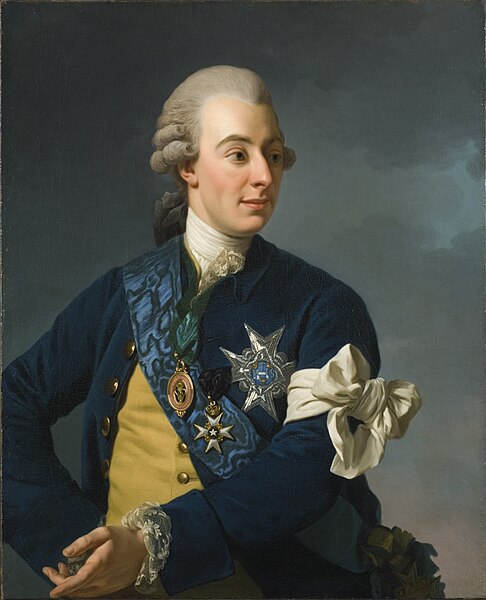March 16th marks a significant date in history, with a multitude of pivotal events spanning centuries of human civilization.
From ancient conquests to modern political upheavals, this date has witnessed moments that have shaped societies, influenced cultures, and altered the course of nations.
Join us on a journey through time as we explore 20 notable events that have occurred on March 16th, each leaving an indelible mark on the tapestry of human history.
March 16th Events in History
597 BC – Babylonians capture Jerusalem, and replace Jehoiachin with Zedekiah as king
This event is part of the broader context of the Babylonian conquest of the Kingdom of Judah. The Babylonians, under King Nebuchadnezzar II, laid siege to Jerusalem and eventually captured the city. Jehoiachin, the then-king of Judah, surrendered after a short siege, and Nebuchadnezzar took him prisoner to Babylon.
Also Read: March 15 – On this Day in History
In his place, Nebuchadnezzar appointed Zedekiah as a puppet king, essentially making Judah a vassal state of the Babylonian empire. This period is significant in Jewish history, leading to the Babylonian Exile, a pivotal moment that shaped Jewish identity and religious practices.

1521 – Ferdinand Magellan reaches the Philippines during his circumnavigation of the globe
Ferdinand Magellan, a Portuguese explorer leading a Spanish expedition, was the first European to arrive in the Philippines, anchoring near Homonhon Island.
This was part of Magellan’s historic circumnavigation of the Earth, which proved the world was round and larger than previously thought, and that the Americas were not part of Asia.
Also Read: March 17th Events in History
Magellan’s arrival in the Philippines marked the beginning of Spanish interest in the archipelago, leading to over three centuries of Spanish colonial rule. Unfortunately, Magellan did not complete the voyage himself; he was killed in the Battle of Mactan in the Philippines.
1621 – Samoset, a Mohegan, visits the settlers of Plymouth Colony and greets them, “Welcome, Englishmen! My name is Samoset”
Samoset was a Native American from the Mohegan tribe who astonished the Plymouth settlers by walking into their encampment and greeting them in English, which he had learned from English fishermen who came to fish off Monhegan Island.
His greeting marked one of the first friendly interactions between Native Americans and Pilgrims. Samoset played a crucial role in the early days of the Plymouth Colony, facilitating communication and helping to establish a peaceful relationship between the settlers and the local Wampanoag tribe.
1660 – The Long Parliament of England is dissolved so as to prepare for the new Convention Parliament
The Long Parliament was called during the period of the English Civil War and was a key player in the trial and execution of King Charles I.
However, with the decline of the Commonwealth and the restoration of the monarchy on the horizon, the Long Parliament was dissolved in 1660 to make way for the Convention Parliament.
This new assembly was responsible for negotiating the terms of King Charles II’s return to England, marking the beginning of the Restoration period. The dissolution of the Long Parliament signified the end of republican rule in England and the re-establishment of the monarchy.
1689 – The 23rd Regiment of Foot or Royal Welch Fusiliers is founded
The Royal Welch Fusiliers, one of the oldest regiments in the British Army, was officially raised in 1689 by Lord Herbert of Chirbury in response to the imminent threat of the Jacobite uprising, which sought to restore James II to the throne.
The regiment played a crucial role in many significant battles and conflicts throughout British military history, including the War of the Spanish Succession, the American Revolutionary War, and both World Wars.
The Fusiliers are renowned for their distinctive uniforms and traditions, such as the use of the “flash,” a black ribbon worn on the back of their headdress, and their association with the goat as a regimental mascot.

1792 – King Gustav III of Sweden is shot; he dies on March 29
King Gustav III of Sweden was assassinated during a masked ball at the Royal Opera House in Stockholm. He was shot by Jacob Johan Anckarström, a disgruntled nobleman, and succumbed to his injuries thirteen days later.
Gustav III’s reign is often noted for its enlightened despotism. He was a patron of the arts and attempted to modernize Sweden’s government and military forces.
His assassination led to significant political turmoil and changes in Sweden, including the eventual limitation of royal power in favor of increased parliamentary governance.
1802 – The Army Corps of Engineers is established to found and operate the United States Military Academy at West Point
The United States Military Academy at West Point was established in 1802, with the U.S. Army Corps of Engineers being responsible for its founding and early operation.
West Point is the oldest continuously operated military post in the United States, and its establishment marked a significant development in military education in the country.
The Academy was created to provide engineers for the Army and to educate cadets in the arts and sciences relevant to military service. Over time, West Point has become one of the premier military academies in the world, producing numerous distinguished military leaders.
1815 – Prince Willem proclaims himself King of the United Kingdom of the Netherlands, the first constitutional monarch in the Netherlands
After the defeat of Napoleon, the Congress of Vienna sought to strengthen the position of the Netherlands by adding the Southern Netherlands (modern Belgium) to create a buffer state against France.
In 1815, Prince Willem of Orange proclaimed himself King Willem I, becoming the first constitutional monarch of the newly formed United Kingdom of the Netherlands, which included present-day Belgium, Luxembourg, and the Netherlands.
His reign saw the modernization of the nation’s economy and the establishment of constitutional governance, although it was also marked by the Belgian Revolution of 1830, after which Belgium became independent.
1818 – In the Second Battle of Cancha Rayada, Spanish forces defeat Chilean independence fighters
The Second Battle of Cancha Rayada was a significant encounter during the Chilean War of Independence, where Spanish royalist forces clashed with the Chilean independence army led by José de San Martín. The battle resulted in a defeat for the Chilean forces, causing disarray and nearly capturing San Martín.
This setback did not deter the independence movement, however, and it was followed by the decisive Battle of Maipú, which secured Chilean independence. The battle is remembered as a testament to the resilience and determination of the Chilean independence fighters.
1872 – The Wanderers F.C. win the first FA Cup, the oldest football competition in the world, beating Royal Engineers A.F.C. 1-0 at The Oval in London, England
The first FA Cup final was held in 1872, marking the beginning of the world’s oldest football competition. The match was contested between Wanderers F.C. and Royal Engineers A.F.C. at The Oval, a cricket ground in London.
The Wanderers emerged victorious with a 1-0 win, courtesy of a goal by Morton Betts, who played under the pseudonym “A.H. Chequer.”
This inaugural competition laid the foundation for the FA Cup’s storied history, becoming a cherished and prestigious event in the football calendar, known for its tradition of unpredictability and the possibility for lower-league teams to face top-flight opposition.

1900 – Sir Arthur Evans purchases the land around the ruins of Knossos, the largest Bronze Age archaeological site on Crete
Sir Arthur Evans, a British archaeologist, purchased the site of Knossos in 1900 and began excavations that would unveil the largest Bronze Age archaeological site on Crete, believed to be the legendary Labyrinth of Minos and home to the myth of the Minotaur.
His work uncovered the Minoan civilization, previously unknown to modern Europeans, highlighting a sophisticated and culturally rich society that flourished approximately 2700 to 1450 BC.
Evans’s discoveries included detailed frescoes, advanced architectural techniques, and the Linear B script, providing invaluable insights into early European history.
1926 – History of Rocketry: Robert H. Goddard launches the first liquid-fueled rocket, at Auburn, Massachusetts
On March 16, 1926, Robert H. Goddard successfully launched the world’s first liquid-fueled rocket in Auburn, Massachusetts. The rocket, named Nell, flew for only 2.5 seconds, covering a distance of 184 feet (56 meters) and reaching an altitude of 41 feet (12 meters).
Despite its modest flight, this event marked a monumental milestone in the history of rocketry, laying the foundational principles for all subsequent space exploration.
Goddard’s pioneering work demonstrated the practicality of liquid fuel over solid fuel, contributing significantly to the development of the technology used in modern rockets.
1935 – Adolf Hitler orders Germany to rearm herself in violation of the Treaty of Versailles. Conscription is reintroduced to form the Wehrmacht
In a bold move that defied the post-World War I Treaty of Versailles, Adolf Hitler initiated a military buildup in Germany by ordering the rearmament of the nation and reintroducing conscription.
This act not only violated the treaty’s conditions, which were intended to limit Germany’s military capabilities, but also signaled a significant step towards the militarization of the country.
The establishment of the Wehrmacht, the unified armed forces of Nazi Germany, marked a pivotal escalation in the aggressive policies that would eventually lead to World War II.
1939 – From Prague Castle, Hitler proclaims Bohemia and Moravia a German protectorate
In the aftermath of the dismemberment of Czechoslovakia, Adolf Hitler declared the regions of Bohemia and Moravia to be a German protectorate from Prague Castle. This act was part of the broader strategy of territorial expansion pursued by Nazi Germany.
By proclaiming these regions as a protectorate, Hitler effectively took control, further consolidating Nazi influence in Central Europe.
The move was a direct consequence of the Munich Agreement’s failure to appease Hitler’s expansionist ambitions and significantly contributed to the escalating tensions leading up to World War II.
1945 – World War II: The Battle of Iwo Jima ends as the island is officially secured by American forces
The Battle of Iwo Jima, one of the most iconic and brutal confrontations of World War II, concluded with the American capture of the island on March 16, 1945. This strategic victory provided the United States with a base from which they could launch air raids on the Japanese mainland and serve as an emergency landing site for damaged bombers.
The battle is famously commemorated by the photograph “Raising the Flag on Iwo Jima,” taken by Joe Rosenthal, which has become a symbol of American perseverance and heroism. Despite the victory, the battle resulted in significant casualties on both sides, highlighting the ferocious nature of the Pacific War.
1968 – General Motors produces its 100 millionth automobile, the Oldsmobile Toronado
In 1968, General Motors reached a monumental manufacturing milestone by producing its 100 millionth automobile, an Oldsmobile Toronado. This achievement underscored General Motors’ position as one of the world’s leading automobile manufacturers.
The Oldsmobile Toronado itself was notable for its innovative design, featuring front-wheel drive—a rarity among American cars at the time—and a powerful V8 engine.
This landmark moment highlighted the massive scale of automotive production in the United States during the post-war era and GM’s significant contribution to the industry’s growth.
1978 – Former Italian Prime Minister Aldo Moro is kidnapped and is later murdered by his captors
Aldo Moro, a prominent Italian statesman and former Prime Minister, was kidnapped by the Red Brigades, a militant left-wing terrorist group, on March 16, 1978. This event shocked Italy and the world, marking a dark chapter in Italian political history.
Moro was held captive for 55 days, during which the Red Brigades sought to negotiate with the Italian government for the release of imprisoned members. The government refused to negotiate, and Moro was ultimately murdered by his captors.
His body was found in the trunk of a car in Rome, a tragic end that led to widespread condemnation of terrorism and a period of intense political turmoil in Italy.
1988 – The Halabja chemical attack is carried out by Iraqi government forces. This was part of the Al-Anfal Campaign in Kurdistan
On March 16, 1988, the Kurdish town of Halabja in Iraq was subjected to a deadly chemical attack by Iraqi government forces, led by Saddam Hussein. This attack was part of the larger Al-Anfal Campaign, aimed at suppressing Kurdish resistance in northern Iraq.
Thousands of civilians were killed, and many more were injured or suffered long-term health consequences, making it one of the most horrific chemical weapons attacks against civilians in history.
The Halabja attack highlighted the brutal tactics used by the Saddam regime against its own people and contributed to the international condemnation of chemical warfare.
1995 – Mississippi formally ratifies the Thirteenth Amendment, becoming the last state to approve the abolition of slavery. The amendment was originally ratified in 1865
In an act that was largely symbolic but deeply significant, Mississippi formally ratified the Thirteenth Amendment in 1995, making it the last U.S. state to officially approve the amendment that abolished slavery.
The Thirteenth Amendment had been ratified by the required number of states in 1865, officially ending slavery in the United States. However, Mississippi’s delayed ratification highlighted the enduring legacy of slavery and the slow pace of change in certain regions.
This act of formal ratification, nearly 130 years after the fact, underscored the ongoing process of reconciling with America’s historical injustices.
2014 – Crimea votes in a controversial referendum to secede from Ukraine to join Russia
On March 16, 2014, a referendum was held in Crimea that resulted in the majority of voters supporting the region’s secession from Ukraine to join the Russian Federation.
The referendum was held amidst the Ukrainian political crisis and was widely criticized by the international community, with many countries and organizations declaring it illegal and a violation of Ukrainian sovereignty.
The annexation of Crimea by Russia led to a significant escalation in tensions between Russia and the West, including sanctions and a reassessment of geopolitical alignments in the region. The situation in Crimea remains a central issue in international relations and a point of contention between Russia and Ukraine.
